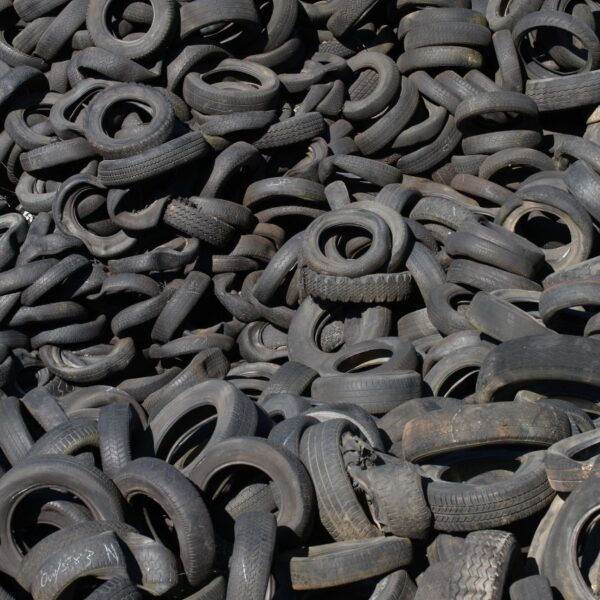
Broader duty of investigation for potential historically contaminated land in Flanders
A new duty of investigation was added to the Soil Decree of 27 October 2006, with entry into force on 12 February 2018.
More specifically, this concerns a one-off duty to conduct an exploratory soil survey ('ESS') for soils with potential historical contamination that have not yet been investigated as the remediation of all historically contaminated soils must have started or completed by 2036.
A phased implementation is provided for. The ESS must be conducted in the following cases:
- Previous risk activities of which at least one with code letter B which started prior to 29 October 1995
before 31 December 2021
By the owner - Previous risk activities of which all with code letter A or at least one with code letter A and no code letter B which started prior to 29 October 1995
before 31 December 2023
By the owner - Previous risk activities only with code letter O which started prior to 29 October 1995
before 31 January 2027
By the owner - Existing risk activities of category O which started prior to 29 October 1995 and are not subject to a periodic duty of investigation
before 31 January 2027
By the operator - Previous risk activities of category A, B or O which started prior to 29 October 1995 and existing risk activities of category O which started prior to 29 October 1995 and are not subject to a periodic duty of investigation
If at least one risk activity is of category B: before 31 December 2021
If there are risk activities A and O but not B: before 31 December 2023
If there are only risk activities O: before 31 January 2027
By the owner and operator
The following do not fall under the new duty of investigation
- existing risk activities of category 'A' and 'B' which started prior to 29 October 1995, because these soils are already subject to a periodic duty of investigation (every 10 to 20 years) based on the current legislation;
- risk activities with code letter 'O' which started after 29 October 1995: these soils will be investigated at the time of transfer or termination of risk activity 'O'. If soil contamination is found, this contamination will be considered new soil contamination;
- previous risk activities 'O', 'A' or 'B' for which an ESS has already been provided to OVAM (the Public Waste Agency of Flanders).
It is OVAM that informs owners and operators of their new duty of investigation in writing. For this, OVAM uses the municipal inventories and the soil data register.
There are provisions for exemption from the new ESS duty for private owners. If applicable, they can proceed with the transfer with no previous ESS on the condition that no new risk activities have been carried out since the exemption.
As a result, the owner is exempt from the duty of investigation if OVAM is of the opinion, based on the necessary supporting documents, that the following conditions have been cumulatively met:
- the owner has not conducted the risk activity or activities;
- the risk activities were not present during the owner's possession;
- the owner has, since the acquisition, only used the site for private purposes.
The owner must submit a request for exemption from the duty of investigation to OVAM by 90 days after receipt of the letter from OVAM relating to the duty of investigation, under penalty of inadmissibility.
If the owner has inherited the title to the at-risk site, it will be checked whether the testator met the conditions for exemption concerned.
In the event of exemption, OVAM will be liable for the ESS, which represents a major transfer of the costs of investigation from private owners to the government.
At the time of sale of an at-risk site, the purchaser will have to be informed of the exemption from the ESS duty given that the soil will still be subject to a soil survey and the purchaser may encounter obstacles or limitations, temporarily or otherwise.
The Soil Decree does not provide for a specific rule that allows OVAM recourse to the seller after the transfer for the duty of remediation in the event that at a later stage after the transfer, the ESS shows that there is soil contamination linked to the previous seller. In such a case, OVAM may try to claim the costs of the ex officio action under the liability rules.
Note that the exemption from the new duty of investigation (ESS) does not automatically mean that the person concerned is exempt from the duty of remediation (descriptive soil investigation and soil remediation). The conditions for exemption from the duty of remediation relate to the soil contamination whilst that info is in principle not available prior to conducting the ESS. It is of course possible, however, that OVAM rule after assessing the ESS that the person who has a duty of remediation meets the conditions for exemption from the duty of remediation.
The Environmental Policy Enforcement Decree of 21 December 2007 provides for supervision and penalties. Annex III of the Environmental Policy Enforcement Resolution (containing the environmental offences that have been decriminalised) did not yet include the new soil investigation duty. In principle, something which is not an environmental offence is an environmental crime.
Associated areas of specialisation: Environment